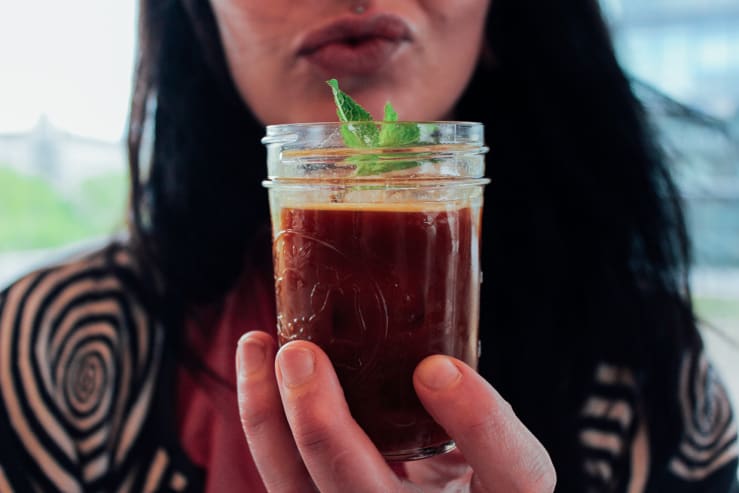For three days in November, 28th to 30th, we were all excited to escape the chilly temperatures and follow the Sun down South, to Barcelona, where the days were at pleasant 15°C.
After the last CoLab in Antwerp half a year ago, the BGE working group brought us to yet another great city, to discover a new format of CoLab and new community of coffee-minded people! This edition, CoLab’ers were expected to take an active part in discussions on three topics–Sustainability, Science and Service–started off by three main speakers from diverse areas of the coffee and food industry. Further talks and workshops followed, allowing a more enthusiastic and active discussion in smaller groups of participants. With extra activities making us discover the booming coffee scene of Spain and Barcelona’s cafes, we bonded during evening social events and indeed had a great autumnal city break with our fellow coffee friends.
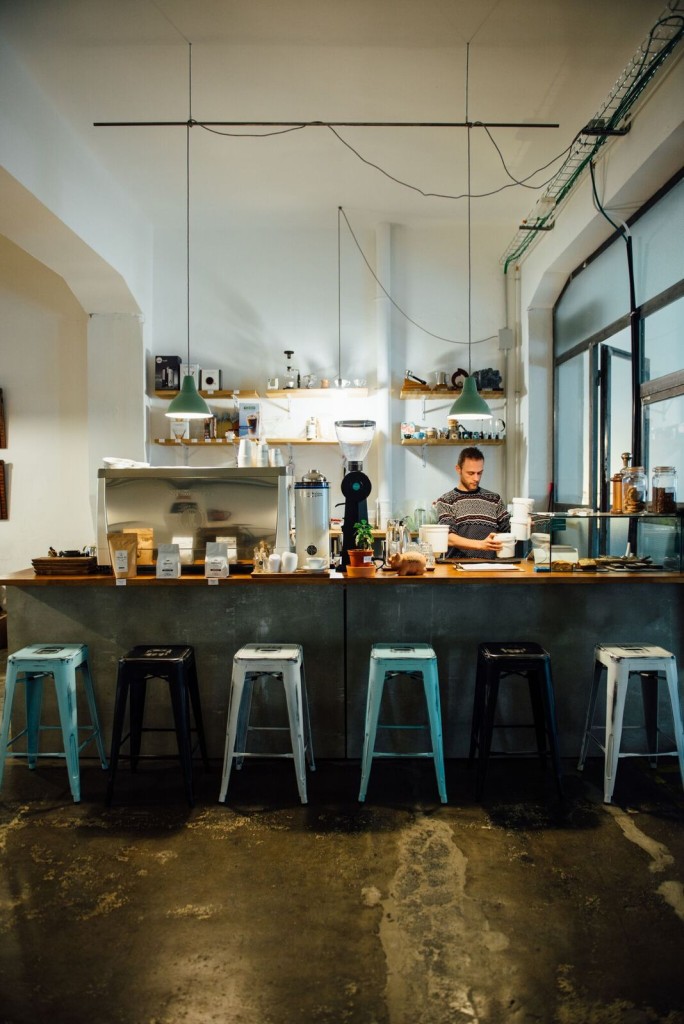
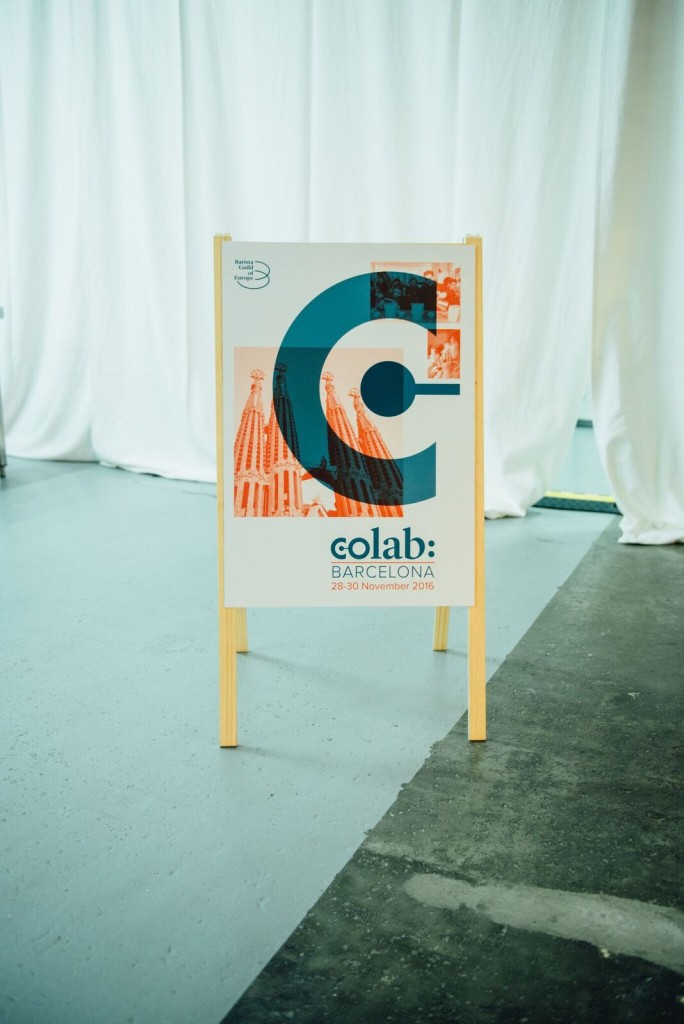
Discussion-provoking presentations
The main day of the CoLab program was hosted by Cooccio, a shared kitchen space where Atmans Coffee resides. With its opened area up front it is the ideal space for freelancers as well as large groups and events hosting.
Kim Elena Ionescu
Kim Elena Ionescu, Director of Sustainability at SCAA, has worked in the coffee industry for over a decade and knows the issues of sustainability through and through also thanks to her Counter Culture Coffee sustainability strategy work.
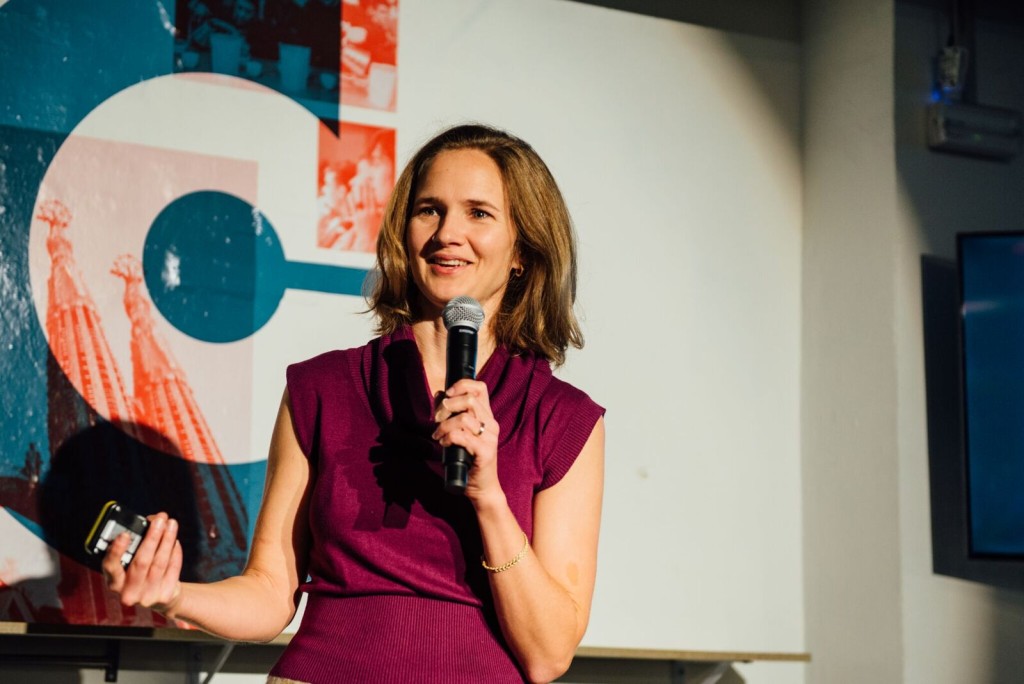
Her understanding of the chain, from a barista, through a coffee buyer role, to her current role with SCAA led her to work on a better inclusion of farm workers in the international discourse. She worked on a paper that explored in depth the concerns of farm workers. What needs do they see as priority when taking a seasonal job at a farm? As with anything else, the issue of sustainability has multiple points of view. Labour can make up to 70% of cost of production of coffee, which puts in perspective the final cost of the beverage we drink every day. Overall the paper studied the issues of climate change and its potential impact on the coffee value chain.
The need to acknowledge the potential of farmers to deliver diverse produce all-year-round was discussed. Would it be possible for farmers to keep their farm workers over the course of the whole year, making their jobs sustainable? What questions do buyers and roasters need to ask in regards to work conditions of workers? In the workshop, thoughts on the main challenges and priorities of baristas, roasters and farm workers were shared.
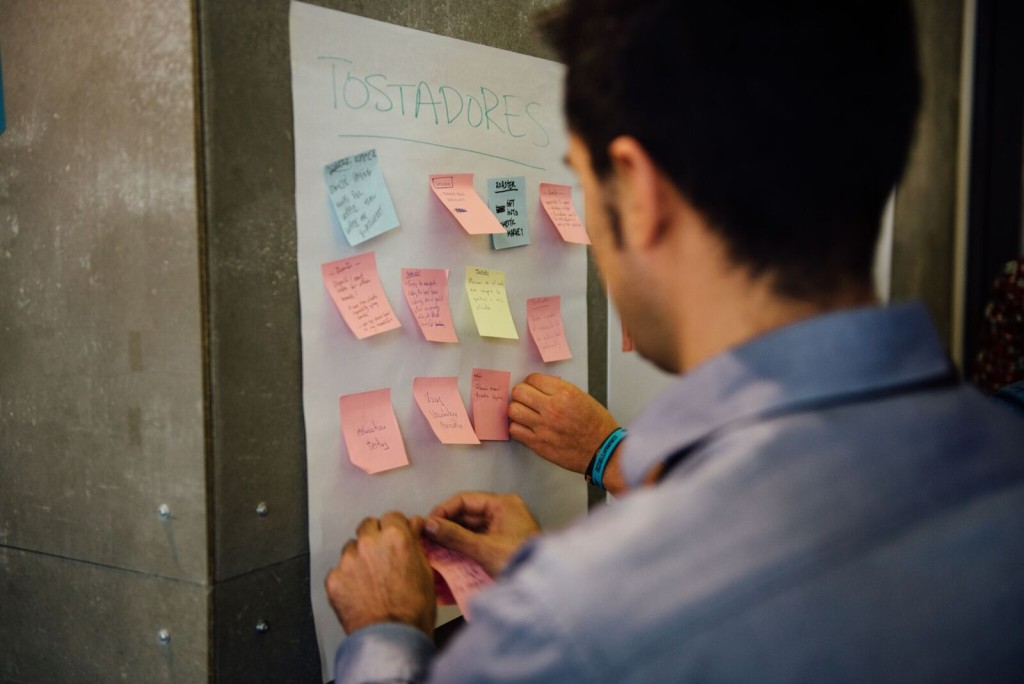
Francis Percival
Food editor and columnist for World of Fine Wine based in London, UK, brought an interesting view to the language used in the world of cheese. Covering the Science element of CoLab, Francis talked–very beautifully–about traditional cheese production and its revival in the past years. As someone with a profound knowledge of wine and cheese, teaching classes for Neal’s Yard Dairy, he surprised us with the confession that the world of cheese has got a lot to learn from the language used to describe coffee.
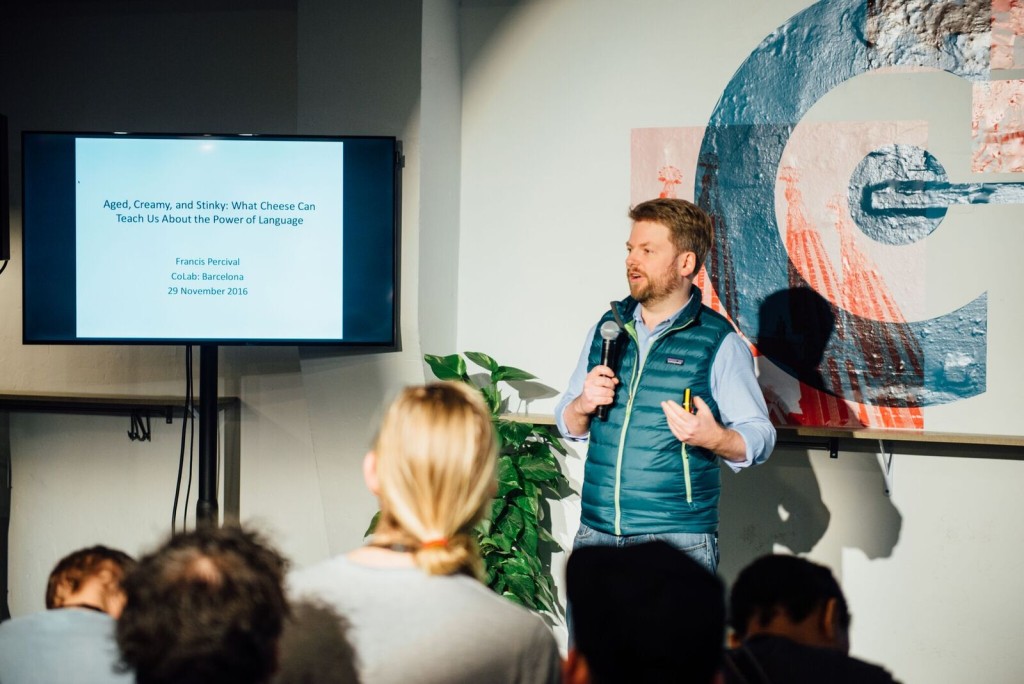
Francis drew some parallels between the two industries as well. From a massive growth in consumption of both, to further mass volume production, causing for instance the loss of the expertise of producing territorial cheeses. Not to mention the fact that most people would not know how to buy cheese–how to describe the type of cheese you want? And do you know how to identify your cheese preferences?
As someone behind the bar you may know this from your own experience–the language of quality shapes the actual product we want to sell. From the user’s point of view it may remain quite difficult to describe the product they like or are looking for. ‘Creamy’ remains the word to describe pretty much any dairy product. Selling cheese depends heavily on the skills the vendor possesses to describe the product. Diverse languages of quality then create diverse products.
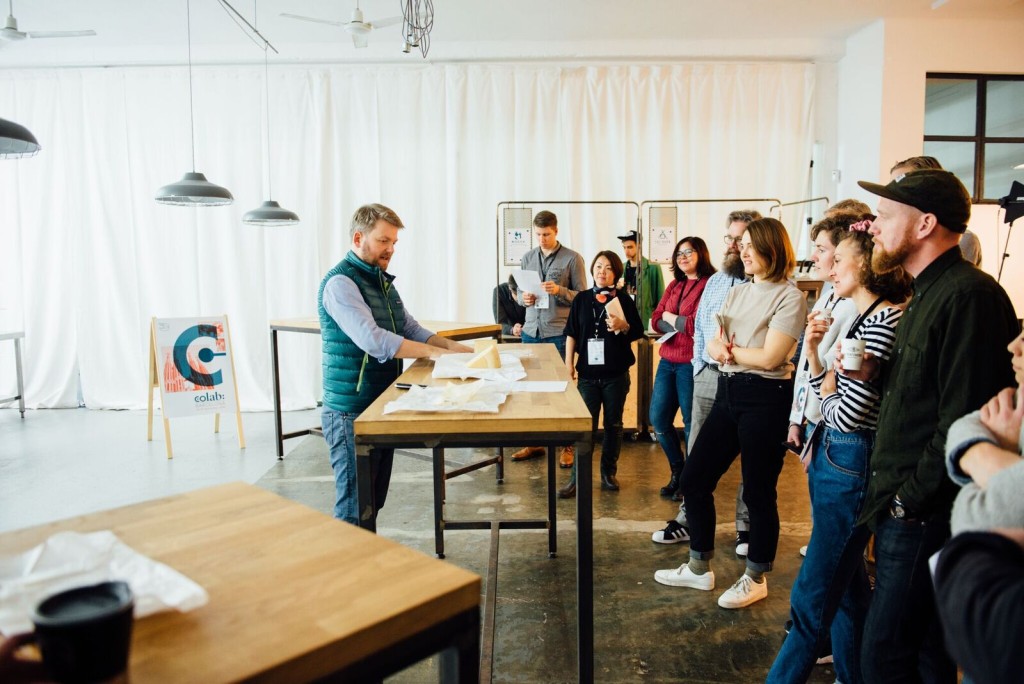
Francis’ presentation took us on a wonderful journey to the world of cheese, highlighted by a taste of six different raw and pasteurised milks from different farmers.
Ger O’Donohoe
With 20 years of experience behind the cafe counter, Ger has got a lot of wisdom to bestow. His presentation was an honest and open review of 2016, in which he learnt the hard way what good service means and how it helps everyone involved in it.
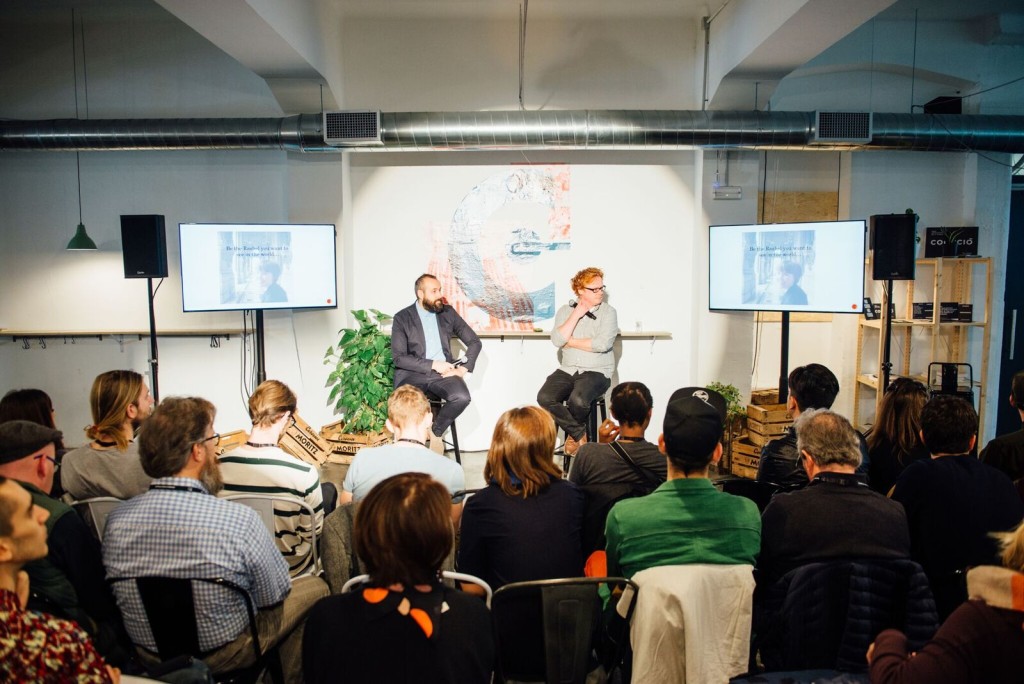
Since 1999, Ger has been serving coffee to people as a barista. In the last 18 months he has been heavily invested in coffee education in Ireland as the owner of First Draft Coffee, recently elected the Irish Educational Coordinator. No matter how much he loves his job though, he also experienced some downs in his career, some worse than others, which made the daily job of serving people with smile and a friendly chit chat a bit more difficult.
This year he lost his best friend, soulmate and partner at First Draft Raschel, to the nasty and unfair cancer. A battle that nobody else but Raschel could have ever undertaken with such grace and strength, all the while keeping her big smile.
Ger’s talk was more of a statement then. No matter how hard life hits you, you can and need to always get back up. No matter what side of the bar you are on, good service can be what makes your day better.
As baristas we encounter so many diverse characters coming to seek refuge, a remedy, a comfort or just a break, on a daily basis. Our service is only ever going to be enjoyable to us, if it is enjoyable, positive and life-giving to the customer. It is not a one-sided ticket, it goes both ways. It is an exchange. Ger appealed to us to take that in consideration when working on the bar and perhaps feeling down.
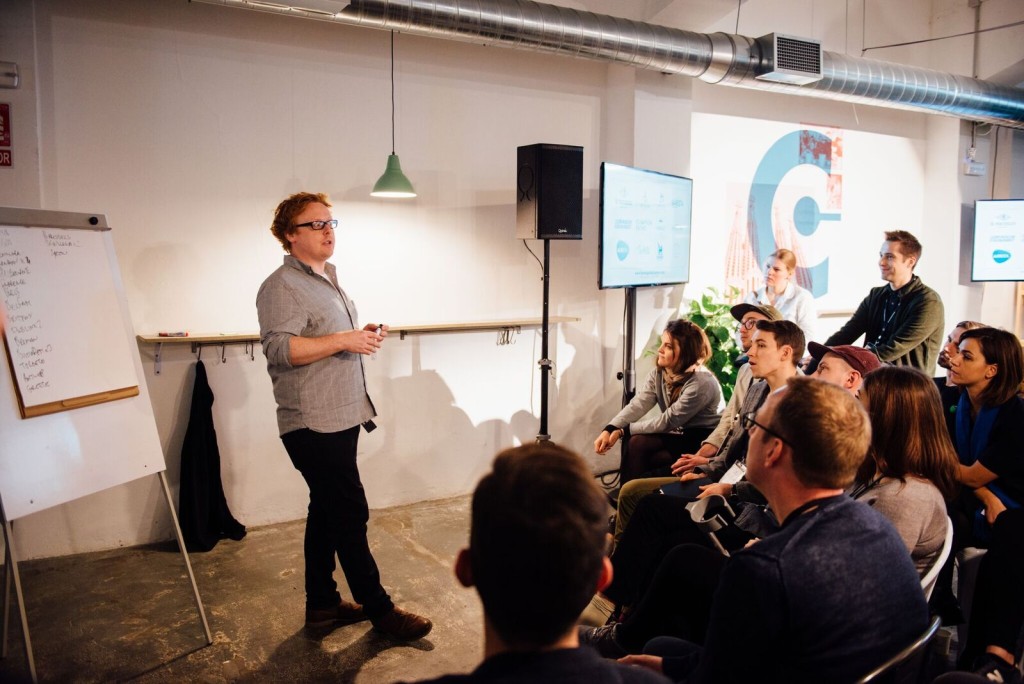
To inspire more kindness and gentleness in us and in the way we serve people, Ger says: ‘Be the Raschel you want to see in the world.’ The incredible bundle of energy and laughter that we all remember her to be.
Following up his moving talk, Ger lead some eyebrow-raising and funny discussions in workshops, broaching diverse service methods in different countries and how a cafe’s set-up, design and menu influence them. Are we losing the hospitality service identity? With so many different (coffee) cultures, kindness is the way to approach all of our customers.
Panel Discussion
The engaging talks had us all pretty exhausted, despite the amount of coffee consumed. After three workshops everyone was served a beer and sat down to listen to Miquel Lamora, owner of Atmans Coffee, Elisabet Sereno, co-owner of True Artisan Café, Jordi Mestre, owner of Nomad Coffee and Salvador Sans of Cafe El Magnífico, all representing the Speciality coffee in Spain, talking about what makes it unique.
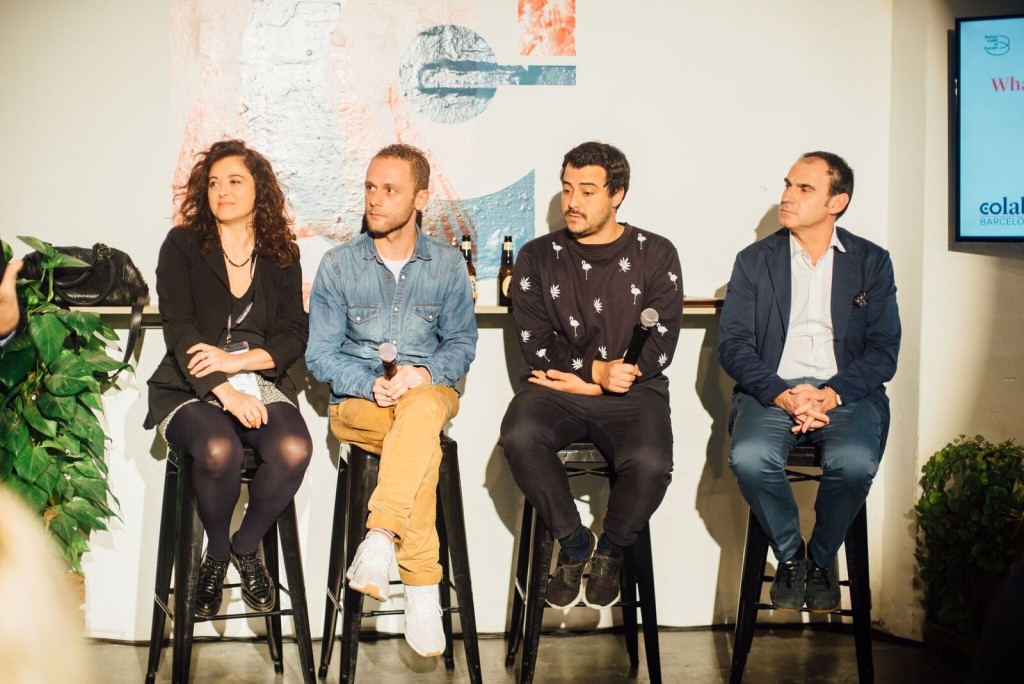
Did you know there is about 14 different ways of serving a cortado? And that is only in one area of Spain. The coffee culture is widely spread and has got roots in torrefacto, but there is a growing number of enthusiasts who drive it forward. Some of them we had the chance to visit the following day.
Fringe Events
The extra activities surrounding the event added a great value to CoLab. It included tastings of all sorts, for instance the bonding session at the Blanxart Chocolate Factory the first day. We learnt a lot about the differences between commodity chocolate and quality bean-to-bar chocolate. The process of harvesting the cocoa pods all the way to turning it into chocolate bars is as important as it is with coffee. Terroir and fermentation process play key roles in the final taste profiles. And if you want to know whether your chocolate bar really contains cocoa butter, just freeze it. It will show as white mass!
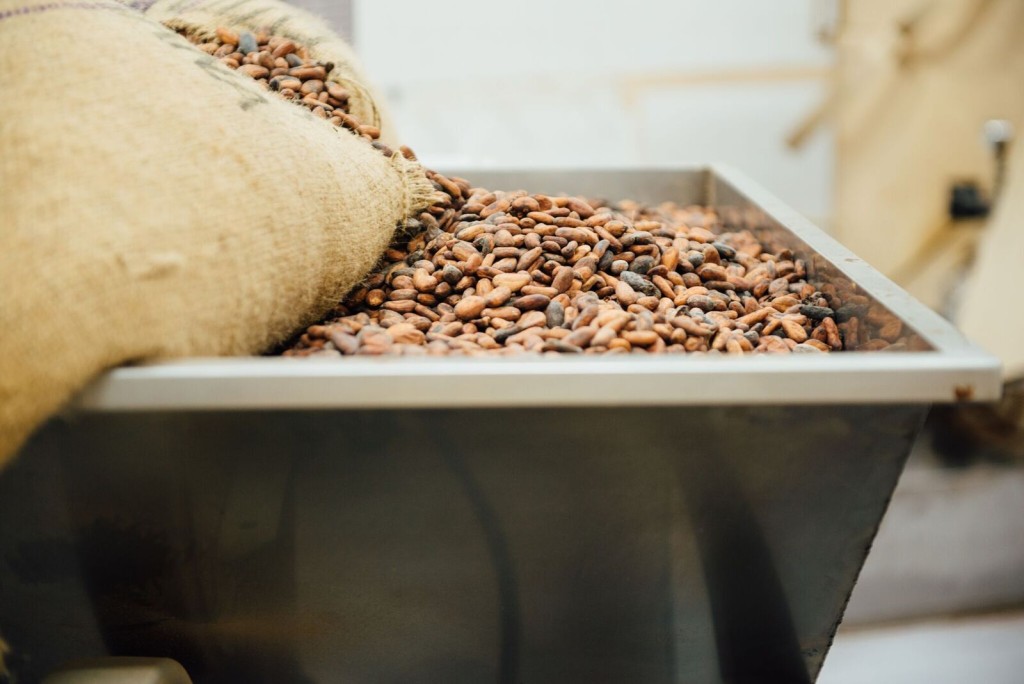
And obviously, we tasted some great chocolates. One reminded us of barbecue sauce! We put some cocoa butter which extracts from the cocoa pods on our hands and learnt that 100% chocolate is made of pure nibs turned into chocolate bar. Intense. Tasty. The origin definitely matters!
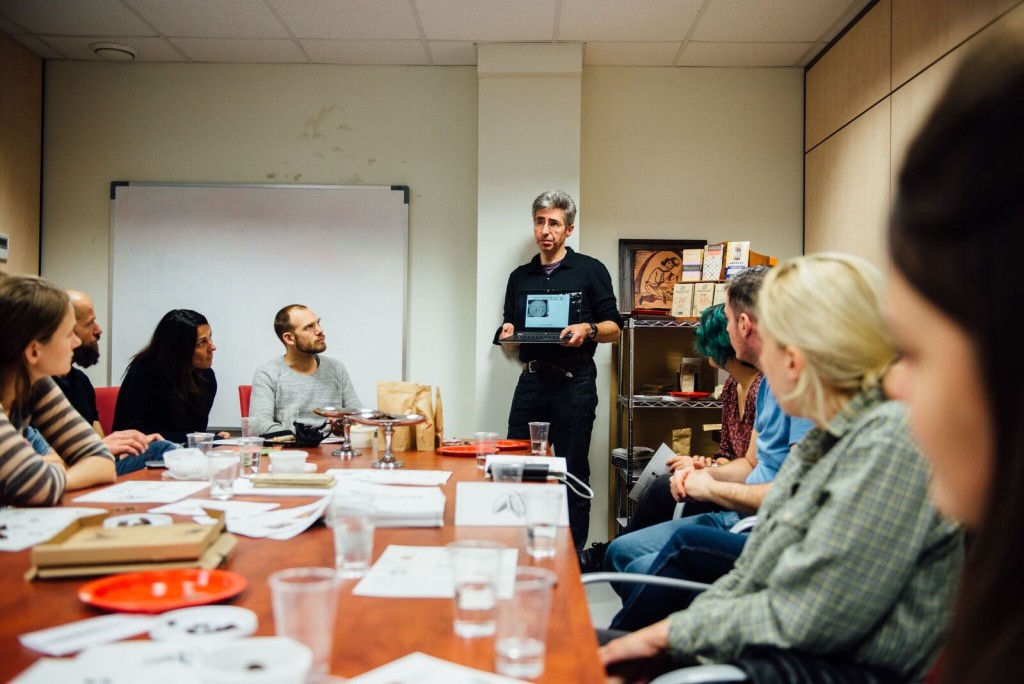
With a city as spread out as Barcelona, its large streets and beautiful houses, nothing is better than a stroll from a cafe to cafe. The locals put a lot of effort into organising many events across the city.
In the south-west, Mare Terra cupped the best of their beans of 2016, at Hidden Cafe, while others went back to Atmans coffee to discover the latest range of Square Mile’s beans (London, UK).
North-east corner of Barcelona saw Right Side Coffee Roasters cup and brew their 2016 harvest at Skye Coffee Co., all the while Nomad Coffee welcomed CoLab’ers to sample their coffees at Nomad Roasters’ Home. Local La Marzocco distributor, True Artisan Cafe, hosted a talk by the professional cyclists Christian Meier and Ferran Buxeda on the effect of coffee on sport.
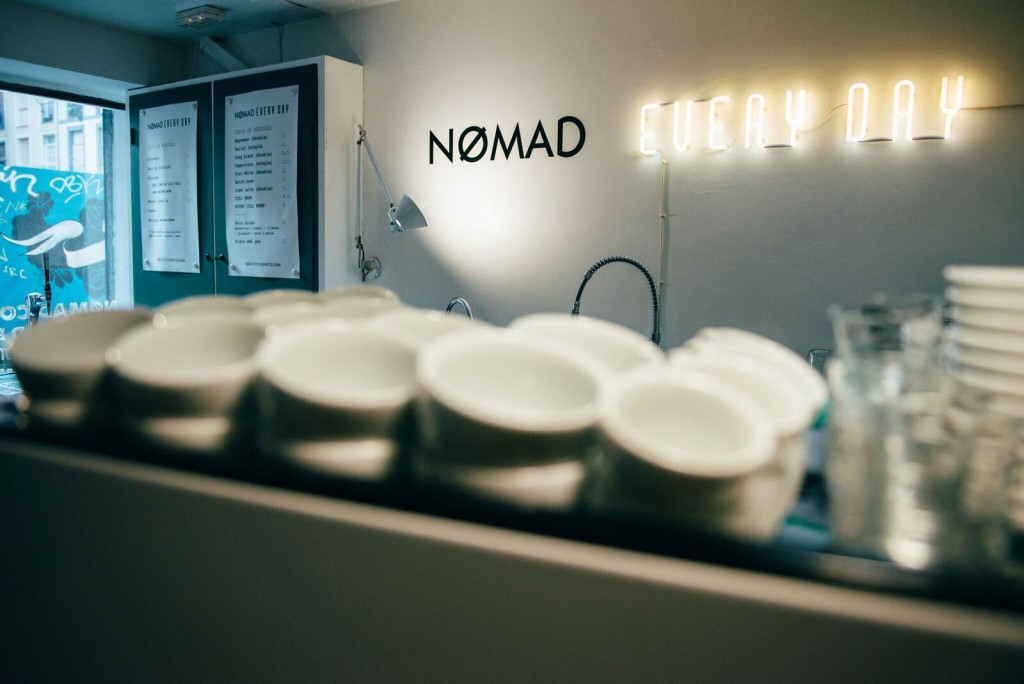
Quality Espresso SA brought the visitors through their factory and hosted a coffee workshop in collaboration with El Magnifico. Those and other events were the main attractions between 11-14 o’clock. For others, it was a breakfast with the BGE working group.
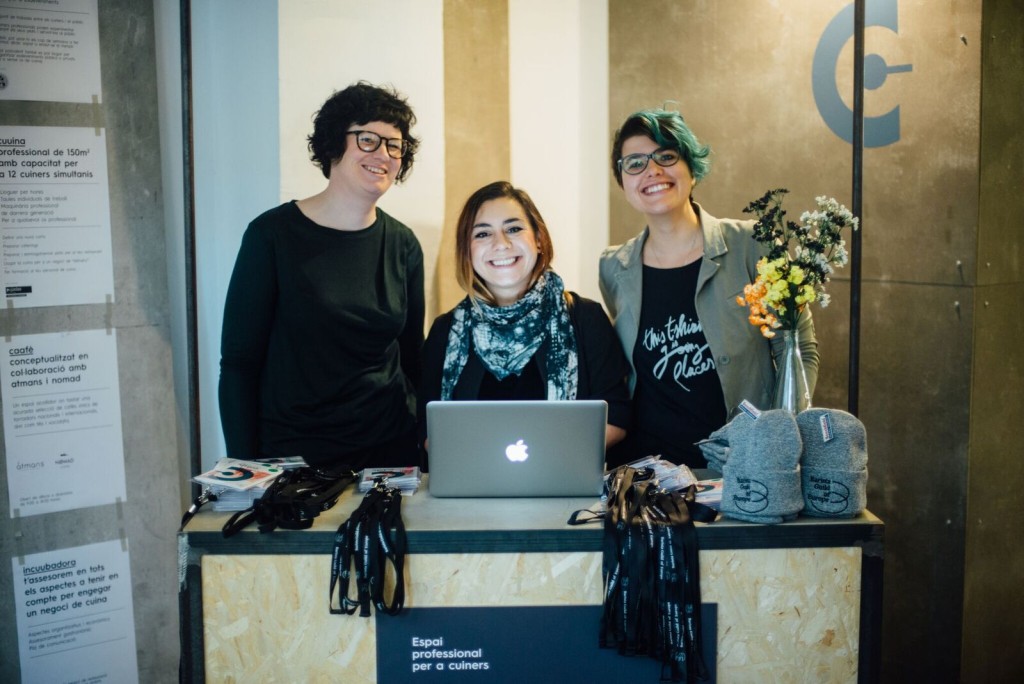
BGE working group met with those who were interested in the future progress of the working group, in regards to the SCAE and SCAA merger, as well as the following year of events. Over a tasty breakfast at Federal Cafe just off Las Ramblas promenade, sitting at a large common table they asked for feedback and ideas on what to do better. And boy did they get some feedback! Not only are CoLab’ers great fun but they also shared their honest opinions with the group.
Evenings were spent sipping chilled beer while locals and visitors bonded over their shared and different experience throughout Europe’s diverse coffee scene.
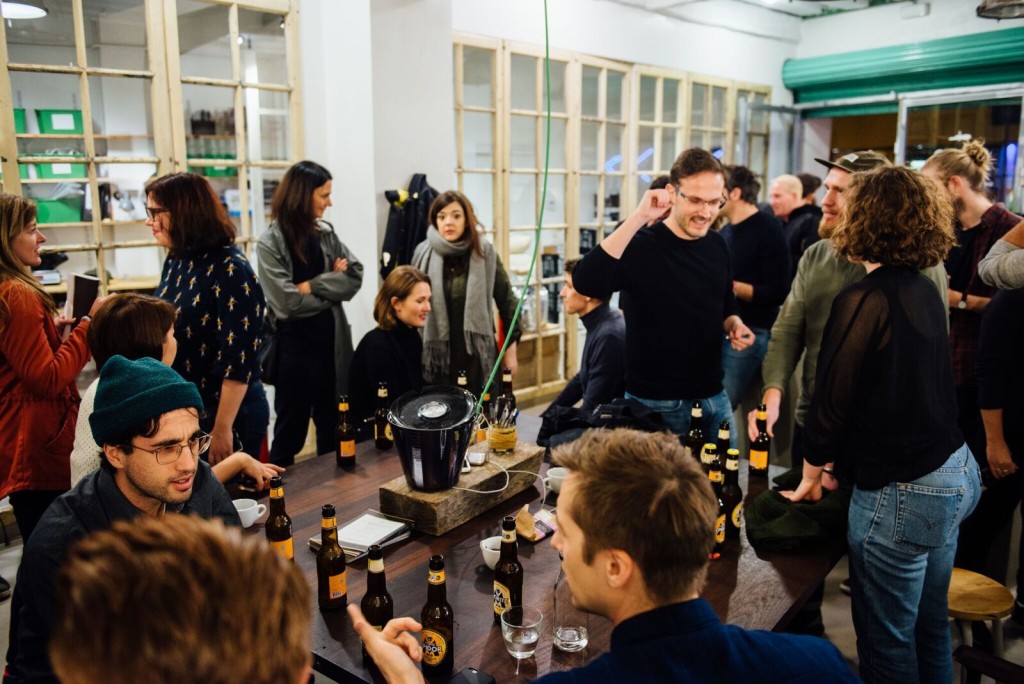
Barcelona was great! The working group must have been thrilled with the great number of people that joined, some of them at the last minute, gathering quite a big crowd for the workshops and presentations. Many ideas and inspirational thoughts were shared and it confirmed that the new format works and is appreciated. Young people in the coffee industry have their idea of what our scene could become and feel they can speak up about it. Let’s see where the next CoLab takes us, literally and metaphorically.
Photo: Jordan Sanchez, the official photographer of the last three BGE Barista Camps is also the co-owner of Cedar Coffee Supply in Alpine, Texas.
